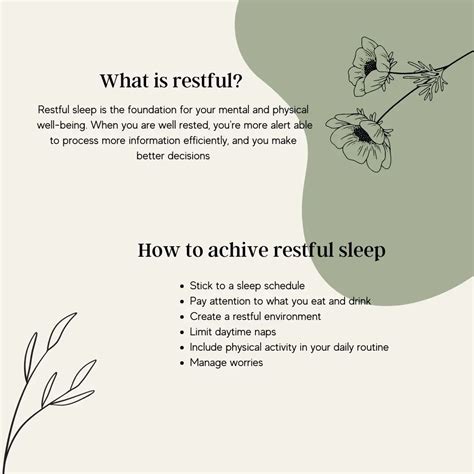How can I optimize recovery to accelerate gains and sustain elite workout performance?

The Untapped Power of Recovery: Beyond the Gym
While intense training is crucial for progress, true athletic optimization and accelerated gains aren’t forged solely under the weight rack. They are significantly amplified during the recovery phase. Recovery is where your body repairs muscle tissue, replenishes energy stores, adapts to stress, and ultimately grows stronger. Neglecting it is like planting a seed and forgetting to water it; the potential remains unrealized. To sustain elite workout performance and continually push boundaries, a meticulous approach to recovery is non-negotiable.
The Cornerstone: Prioritizing Quality Sleep
Sleep is arguably the single most important recovery tool available. During deep sleep, your body releases human growth hormone (HGH), essential for muscle repair and growth, and repairs cells and tissues. Insufficient sleep elevates cortisol (a stress hormone), impairs glucose metabolism, and reduces cognitive function, all detrimental to performance and recovery.
Aim for 7-9 hours of high-quality sleep nightly. Establish a consistent sleep schedule, create a cool, dark, and quiet sleep environment, and avoid screens and caffeine before bed. Investing in your sleep health is investing directly in your gains.

Fueling Your Recovery: Strategic Nutrition and Hydration
What you put into your body directly impacts its ability to recover. Post-workout nutrition is critical for replenishing glycogen stores and initiating muscle protein synthesis.
- Protein: Consume adequate protein (around 1.6-2.2g per kg of body weight) daily, with a focus on high-quality sources, especially around your workouts, to provide amino acids for muscle repair and growth.
- Carbohydrates: Replenish glycogen stores with complex carbohydrates, particularly after intense sessions, to restore energy levels for subsequent workouts.
- Healthy Fats: Include essential fatty acids for hormone production and to reduce inflammation.
Hydration is equally vital. Dehydration impairs performance, slows nutrient transport, and hinders metabolic processes. Drink plenty of water throughout the day, increasing intake around workouts and in hot environments. Electrolytes may also be beneficial during prolonged or very intense training.

Active Recovery and Mobility Work
While rest days are essential, complete inactivity isn’t always optimal. Active recovery involves low-intensity movement that promotes blood flow, helps flush metabolic waste products, and reduces muscle soreness without adding significant stress. Examples include light cycling, walking, swimming, or yoga.
Mobility work, such as stretching, foam rolling, and dynamic movements, improves range of motion, reduces muscle stiffness, and can prevent injuries. Incorporate these into your warm-ups, cool-downs, and dedicated recovery sessions.

Strategic Supplementation (When Appropriate)
Supplements are not magic pills, but certain ones can support recovery when your diet is already optimized. Consult with a professional before adding supplements to your regimen.
- Creatine: Enhances strength and power, and aids in ATP regeneration.
- Whey Protein/Casein: Convenient sources of protein for muscle repair.
- BCAAs (Branched-Chain Amino Acids): May reduce muscle soreness and promote recovery, though adequate dietary protein usually provides sufficient BCAAs.
- Magnesium: Essential for muscle function, nerve transmission, and sleep quality.
- Omega-3 Fatty Acids: Possess anti-inflammatory properties.

Stress Management and Mental Well-being
Physical stress from training is only one piece of the puzzle. Chronic mental and emotional stress significantly impacts recovery by elevating cortisol levels, which can lead to muscle breakdown and impaired immune function. Incorporate stress-reduction techniques into your daily routine:
- Meditation or mindfulness
- Deep breathing exercises
- Spending time in nature
- Engaging in hobbies
- Ensuring adequate downtime away from work and training pressures
Listening to Your Body: Periodization and Deloads
Overtraining is a real threat to sustained performance and can lead to plateaus, injury, and burnout. Learn to recognize the signs: persistent fatigue, decreased performance, elevated resting heart rate, irritability, and prolonged muscle soreness. Implement periodization into your training, alternating between high-intensity and lower-intensity phases. Schedule regular deload weeks—periods of reduced volume and intensity—to allow your body to fully recover and adapt before launching into another demanding training block.

Conclusion: A Holistic Approach to Sustained Excellence
Optimizing recovery isn’t a single action but a comprehensive strategy integrating multiple facets of your lifestyle. By diligently prioritizing quality sleep, fueling your body with strategic nutrition and hydration, incorporating active recovery and mobility, utilizing smart supplementation, managing stress, and intelligently structuring your training, you create an environment where your body can not only recover from elite performance but also adapt and thrive, accelerating your gains and sustaining your peak potential for the long term.







